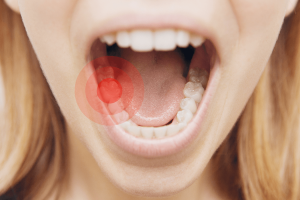 Toothaches can be an incredibly uncomfortable and disruptive experience. It’s a pain that radiates in and around the teeth and jaws, often caused by tooth decay. If you’re experiencing toothache, it’s essential to understand the causes, symptoms, and treatment options available to alleviate the pain and prevent further complications. In this comprehensive guide, we’ll discuss everything you need to know about toothache, from its causes to prevention strategies. So, let’s dive in and explore the world of toothache together.
Toothaches can be an incredibly uncomfortable and disruptive experience. It’s a pain that radiates in and around the teeth and jaws, often caused by tooth decay. If you’re experiencing toothache, it’s essential to understand the causes, symptoms, and treatment options available to alleviate the pain and prevent further complications. In this comprehensive guide, we’ll discuss everything you need to know about toothache, from its causes to prevention strategies. So, let’s dive in and explore the world of toothache together.
Understanding Toothache: Causes and Symptoms
Toothache can have various underlying causes, and it’s important to identify the specific issue to receive the right treatment. Here are some common causes of toothache:
-
- Tooth Decay: Tooth decay, also known as dental caries, is one of the most prevalent causes of toothache. It occurs when the outer layer of the tooth (enamel) gets damaged, leading to the formation of cavities.
- Abscessed Tooth: An abscessed tooth refers to an infection that reaches the tooth’s root or between the tooth and gums. It often causes severe toothache accompanied by swelling and a foul taste in the mouth.
- Tooth Fracture: A tooth fracture can occur due to trauma, grinding, or biting on hard objects. It can cause sharp and intermittent pain, especially when pressure is applied to the affected tooth.
- Damaged Filling: If you have a loose or broken filling, it can expose the sensitive inner layers of the tooth, leading to toothache.
- Repetitive Motions: Certain habits like chewing gum or grinding teeth can cause toothache by putting excessive pressure on the teeth and jaws.
- Infected Gums: Gum infections, such as periodontal disease, can cause inflammation and pain in the gums, which can radiate to the surrounding teeth.
Now that we’ve explored the common causes, let’s take a closer look at the symptoms associated with toothache:
-
- Sharp, throbbing, or constant tooth pain
- Swelling around the affected tooth
- Fever or headache
- Foul-tasting drainage from the infected tooth
When to Seek Dental Care for Toothache
Knowing when to seek professional dental care for your toothache is crucial in preventing further complications. Here are some guidelines to help you make that decision:
-
- If your toothache lasts longer than one or two days, it’s advisable to visit your dentist as soon as possible. Delaying treatment can worsen the condition.
- Severe toothache, accompanied by fever, earache, or difficulty opening your mouth, warrants immediate dental attention.
- If you notice swelling in your face or neck, it could be a sign of a severe dental infection, and you should seek emergency dental care.
Remember, proper identification and treatment of dental infections are essential to prevent their spread and potential complications.
Evaluating Toothache: What Happens During a Dental Visit?
When you visit your dentist for a toothache, they will conduct a thorough examination to identify the underlying cause of your pain. Here’s what you can expect during your dental evaluation:
-
- Medical History: Your dentist will begin by obtaining your medical history, including any previous dental procedures or conditions.
- Physical Examination: A physical examination of your mouth, teeth, gums, jaws, tongue, throat, sinuses, ears, nose, and neck will be conducted. This examination helps your dentist pinpoint the exact source of your toothache.
- Diagnostic Tests: Your dentist may order X-rays or other diagnostic tests to gain a clearer understanding of your dental condition. These tests can provide detailed images of your teeth, roots, and surrounding structures.
By combining your medical history, physical examination, and diagnostic tests, your dentist will be able to make an accurate diagnosis and recommend appropriate treatment.
Treating Toothache: Exploring Treatment Options
The treatment for toothache varies depending on the underlying cause. Here are some common treatment options:
-
- Tooth Decay: If tooth decay is the cause of your toothache, your dentist will remove the decayed area and replace it with a dental filling. This helps restore the tooth’s structure and alleviates the pain.
- Abscessed Tooth: In the case of an abscessed tooth, your dentist may perform a root canal treatment. This procedure involves removing the infected pulp, cleaning the root canal, and sealing it with a filling to prevent reinfection.
- Tooth Fracture: Treatment for a fractured tooth depends on the severity of the fracture. It may involve bonding, dental crowns, or in severe cases, extraction followed by replacement options like dental implants.
- Damaged Filling: If your toothache is caused by a loose or broken filling, your dentist will remove the filling, clean the affected area, and replace it with a new filling.
- Infected Gums: Treating gum infections often involves deep cleaning procedures like scaling and root planing. In severe cases, your dentist may recommend surgical interventions.
It’s important to note that these treatment options are tailored to each individual’s unique dental condition. Your dentist will guide you through the most appropriate course of action based on their evaluation.
Preventing Toothache: Tips for Maintaining Oral Health
Prevention is always better than cure. To minimize the risk of toothache and other dental problems, it’s crucial to maintain good oral hygiene. Here are some preventive measures you can take:
-
- Limit Sugary Foods and Drinks: Reduce your intake of sugary foods and drinks, consuming them as occasional treats and preferably during mealtimes.
- Brush Regularly: Brush your teeth at least twice a day using a fluoride-containing toothpaste. Don’t forget to gently brush your gums and tongue as well.
- Floss and Use Mouthwash: Clean between your teeth using dental floss and, if necessary, incorporate mouthwash into your oral hygiene routine.
- Avoid Smoking: Smoking can exacerbate dental problems, so it’s best to avoid it altogether.
- Schedule Regular Dental Check-ups: Regular dental check-ups are essential for maintaining good oral health. The frequency of check-ups may vary depending on your overall oral health and risk factors. Children should have check-ups every six months to detect and treat tooth decay early.
By following these preventive measures and seeking professional dental care regularly, you can significantly reduce the chances of experiencing toothache.
Toothache can be a distressing condition, but understanding its causes, symptoms, and treatment options can help you navigate through it effectively. Remember to seek dental care promptly if you experience prolonged or severe toothache. By prioritizing good oral hygiene practices and regular dental check-ups, you can prevent toothache and maintain optimal oral health. So, take care of your teeth, and smile confidently knowing you’re well-informed about toothache.
Contact us (859) 586-7900 for more information or to make an appointment!
—
 About Torbeck Dental
About Torbeck Dental
Torbeck Dental treats every patient with dignity and excellent care. We are highly trained dental professionals with exceptionally friendly and helpful service. We understand that for many, visiting a dentist can be a stressful experience so our comfortable surroundings and compassionate staff will ease any fears you may have. We are here to help you achieve your happiest and healthiest smile! Our dental team are a group of experienced professionals using the latest treatments. Our team has the professional experience to realize that there is no such thing as one-size-fits-all treatment, so we never use a one-size-fits-all approach to your dental plan. We provide quality and personalized oral health care while keeping your individuality in mind. Our goal is to improve and maintain your oral health so you can smile with confidence!
